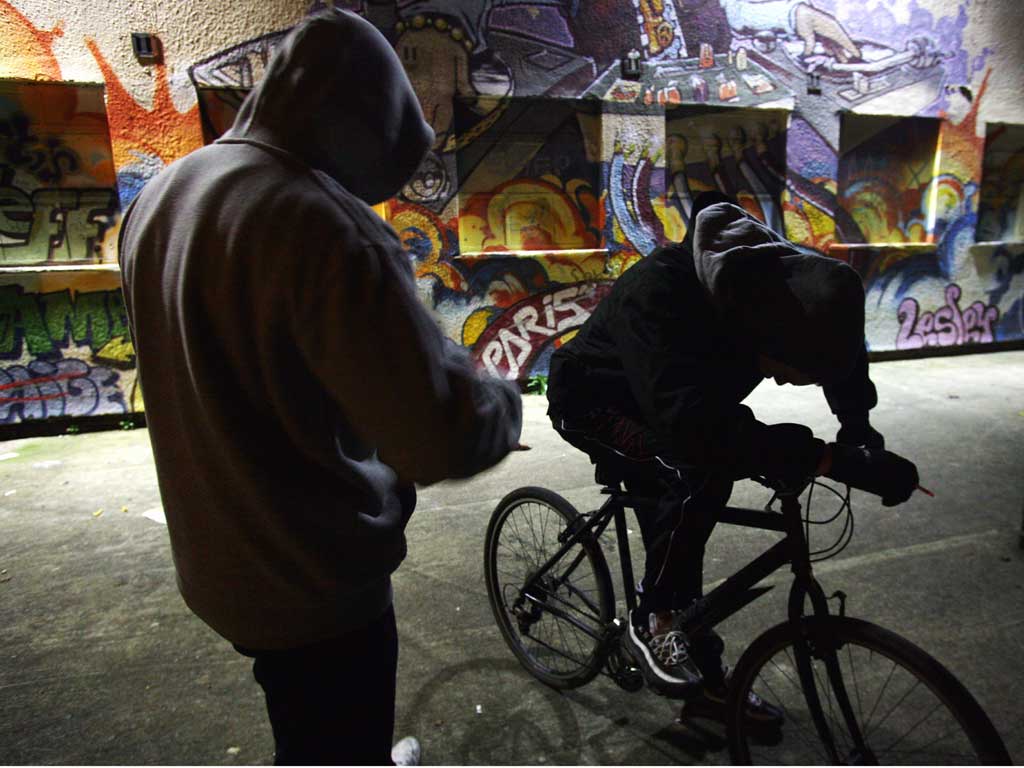IoS exclusive: Problem families told - 'Stop blaming others'
Eric Pickles tells IoS he will pay councils to end the 'it's not my fault' culture by targeting truants and jobless

Your support helps us to tell the story
From reproductive rights to climate change to Big Tech, The Independent is on the ground when the story is developing. Whether it's investigating the financials of Elon Musk's pro-Trump PAC or producing our latest documentary, 'The A Word', which shines a light on the American women fighting for reproductive rights, we know how important it is to parse out the facts from the messaging.
At such a critical moment in US history, we need reporters on the ground. Your donation allows us to keep sending journalists to speak to both sides of the story.
The Independent is trusted by Americans across the entire political spectrum. And unlike many other quality news outlets, we choose not to lock Americans out of our reporting and analysis with paywalls. We believe quality journalism should be available to everyone, paid for by those who can afford it.
Your support makes all the difference.The Government is to call for an end to what it describes as an "it's not my fault" culture of excuses, which has allowed 120,000 "troubled families" to avoid taking responsibility for their own lives.
Eric Pickles, the Communities Secretary, warns there will be "a little less understanding" and a tougher approach to the families who are "fluent in social work" and are responsible for chaos that costs the country £9bn every year. He wants fewer children playing truant, life-long benefit claimants on the road to employment, and fewer police call-outs to problem homes.
He will announce tomorrow that all 152 top-level councils in England will be incentivised to send in troubleshooters to confront difficult families in their area, as part of a £450m payment-by-results scheme.
In an interview with The Independent on Sunday, Mr Pickles said the programme will be "more forceful in language, a little less understanding". He added: "Sometimes we've run away from categorising, stigmatising, laying blame."
But at a time of austerity and a bleak jobs market, and with the Tories vulnerable to the charge of being out of touch, any attempt to target the poorest people risks looking insensitive.
Under government criteria, a troubled family is one that meets five out of seven criteria: having a low income, no one in the family who is working, poor housing, parents who have no qualifications, where the mother has a mental health problem, one parent has a long-standing illness or disability, and where the family is unable to afford basics, including food and clothes. Many of the seven are beyond the control of the families themselves.
Mr Pickles will spell out how every county and metropolitan council has "agreed to come to a programme that's realistic" and announce extra central government funding for turning round the lives of troubled families.
Councils will receive £3,900 for achieving at least 85 per cent attendance in schools among these families, a 60 per cent reduction in anti-social behaviour and a cut of a third in youth offending. Getting one adult in the family off benefits and into work for three months would net the council £4,000.
Mr Pickles likened the no-blame culture to the song "Gee, Officer Krupke" from the musical West Side Story, in which gang members say their troublemaking is the fault of their parents. He said: "It's basically 'dear Officer Krupke, I've come from a single home, my mother's a drunk, it's not my fault', all that kind of thing. Sometimes when you meet some families, they have got the language, they are fluent in social work." While he acknowledged that the last Labour government had made "honest" attempts to tackle the problem, he claimed that progress had been held back by political correctness and a reluctance to "stigmatise or lay blame".
Families who caused him grief when he was leader of Bradford council in the late 1980s were still causing problems a generation on, he said. There are an estimated 1,760 troubled families in the city today. In Birmingham the figure stands at 4,180, and in Manchester 2,385. Cornwall is estimated to have 1,270 such families and Durham 1,320. Charities including Barnardo's have stressed the importance of early intervention, saying many parents heading troubled families "will have experienced poor parenting, abuse or neglect themselves".
Critics will claim the prospects of these families will be worsened by the coalition's programme of public spending cuts. The Department for Communities and Local Government is cutting council funding by more than a quarter over four years. Councils are expected to provide 60 per cent of the funding to help problem families, in addition to £448m from Whitehall.
But Mr Pickles insists the ups and downs of the economy have little impact on the families he has in his sights. "Come artificial boom, come bust; come tough times, come good times... these folks have been completely immune from it. Even at the height of our debt-fuelled boom, it wasn't even impinging slightly on [these] people's lives. It's just been the easiest thing for authorities to say, 'Here's some money, go away.'"
The policy will be overseen by the Government's Troubled Families Team, led by Louise Casey, the former New Labour adviser who Mr Pickles said understood "that you have got to roll up your sleeves and get the broom cracking on a lot of folks".
Join our commenting forum
Join thought-provoking conversations, follow other Independent readers and see their replies
Comments